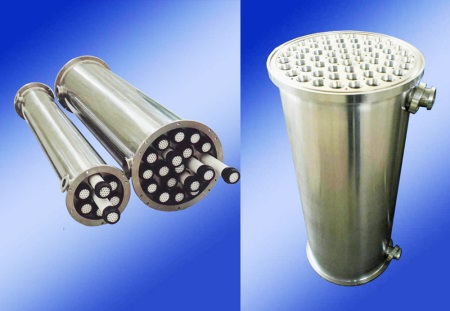Ceramic filters for water purification
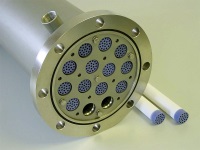
Water filters are represented by different systems, differing in their materials of manufacture and size. One of the most versatile and affordable are ceramic filters. They have many advantages over other types of filters used in water purification.

Features
Water filters of this type are specific filters with small pores, so they provide high purification of drinking water, removing everything from foreign mechanical impurities, silt, algae particles to bacteria. At the same time there is no need to add any chemical compounds to the water.
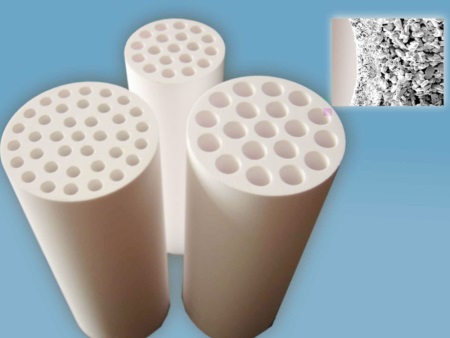
Other features of ceramic filters are:
- High resistance of membranes to alkalis, abrasive particles, acids and high temperatures.
- Significant mechanical strength.
- Ease of cleaning by backwashing.
- Long service life.
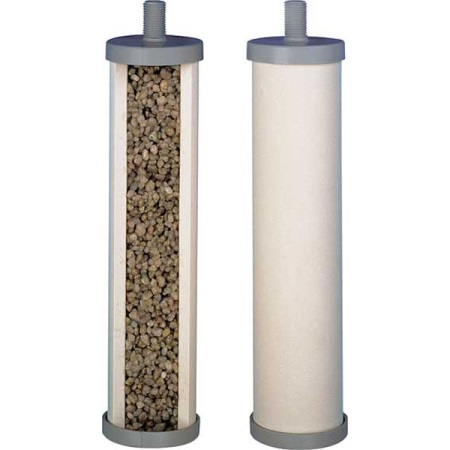
Design and principle of operation
Once water has entered the ceramic filter, it seeps through the many pores on its surface. As it flows through the pores, both inorganic and organic particles exceeding a certain size remain on the filter ceramics, resulting in water purification.
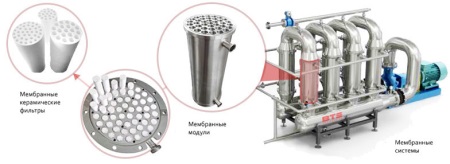
Some filters contain silver compounds embedded in the ceramic. Their action is directed at bacteria remaining on the surface of the filter membrane (silver inhibits their growth).
Also, a ball of activated carbon may be added inside some ceramic filters to eliminate chlorine and other substances that can give water a strange odor or unpleasant taste. In addition, such granular charcoal helps remove pesticides from the water, which is especially valuable for water purification in a suburban home.
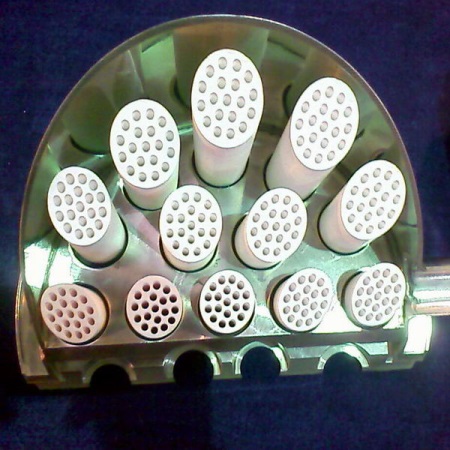
Composition of ceramic membranes
By design, a ceramic filter is a membrane unit inside a steel housing. The membrane unit contains a single or multi-channel tube made of ceramic metal materials. On the inner surface of the channels of this tube there is a thinly porous membrane. The thickness of such a membrane is 5 microns and the diameter of its holes is 0.05-0.1 microns.
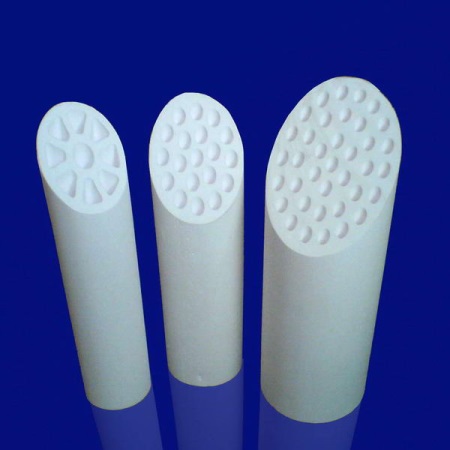
What is made of?
Ceramic membrane filters are based on various combinations of metallic and ceramic powders. The basic material of a membrane can be aluminum oxide, zirconium dioxide, diatomite, titanium dioxide or silicon carbide. Membrane manufacturing involves sintering such materials at temperatures above +1600ºC. Such processing results in a porous structure capable of trapping the finest impurities.
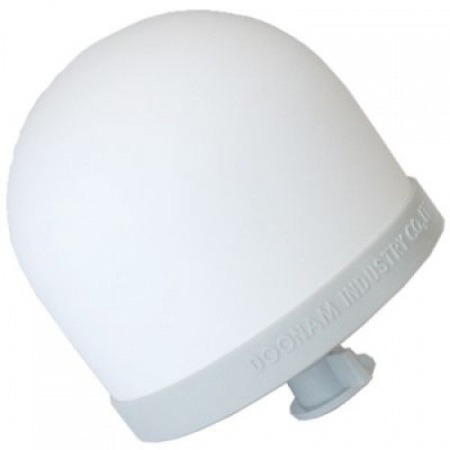
Where can I use them?
Ceramic filters are used to purify water intended for drinking. They are installed in apartments, cottages, country houses, offices, educational and medical institutions.
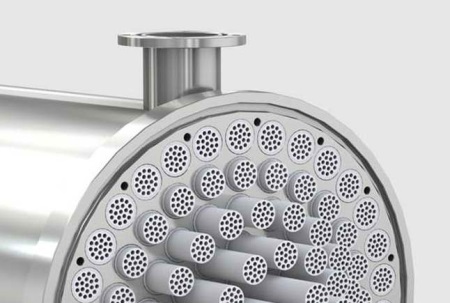
These filters are also installed in water-related industries, e.g. for the production of sterilized water in the pharmaceutical and electronic industries.
What contaminants and bacteria does the water purify from?
The ability to remove bacteria and certain contaminants from the water is affected by the brand and model of the filter. Nevertheless, it is noted that after water passes through a ceramic filter, up to 99% of pathogenic microorganisms are removed from the water. These include E. coli, cholera vibriones, salmonella, giardia. This type of filter also removes lead and other metals, colloidal suspended solids and various organic compounds from the water.

Does it reduce the amount of fluoride?
Some ceramic filters have the ability to reduce the amount of fluoride in drinking water. Specifically, you should check with the manufacturer to see if the filter you choose is capable of removing fluoride from your water. Especially for the purification of water from the compound developed a filtration system, based on reverse osmosis.
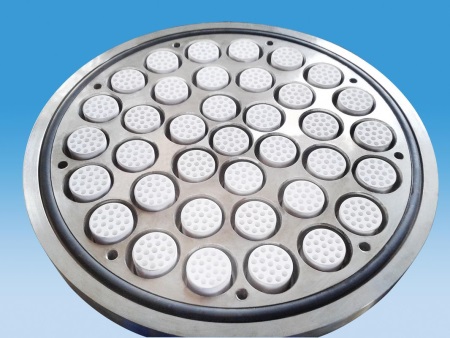
Manufacturers
You can buy filters from such well-known foreign manufacturers as Crystal Quest, Katadyn, Doulton, Pentek. Each of these brands has a line of ceramic filters. Among Russian brands, the filters of Geyser and Aquafor are popular. You can also buy Russian filters of the AkvaKon line.
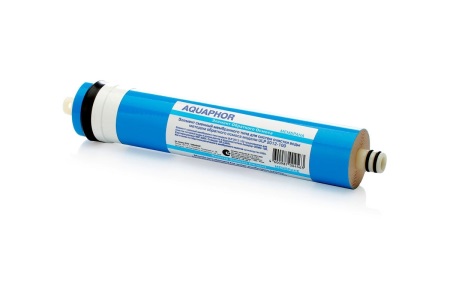
You can see how Aquakon ceramic filters work in the following video.
Prices
Depending on the features of a particular filter model, prices start at $100 and can reach several thousand dollars if we are talking about a large filtration system used in the production environment.
